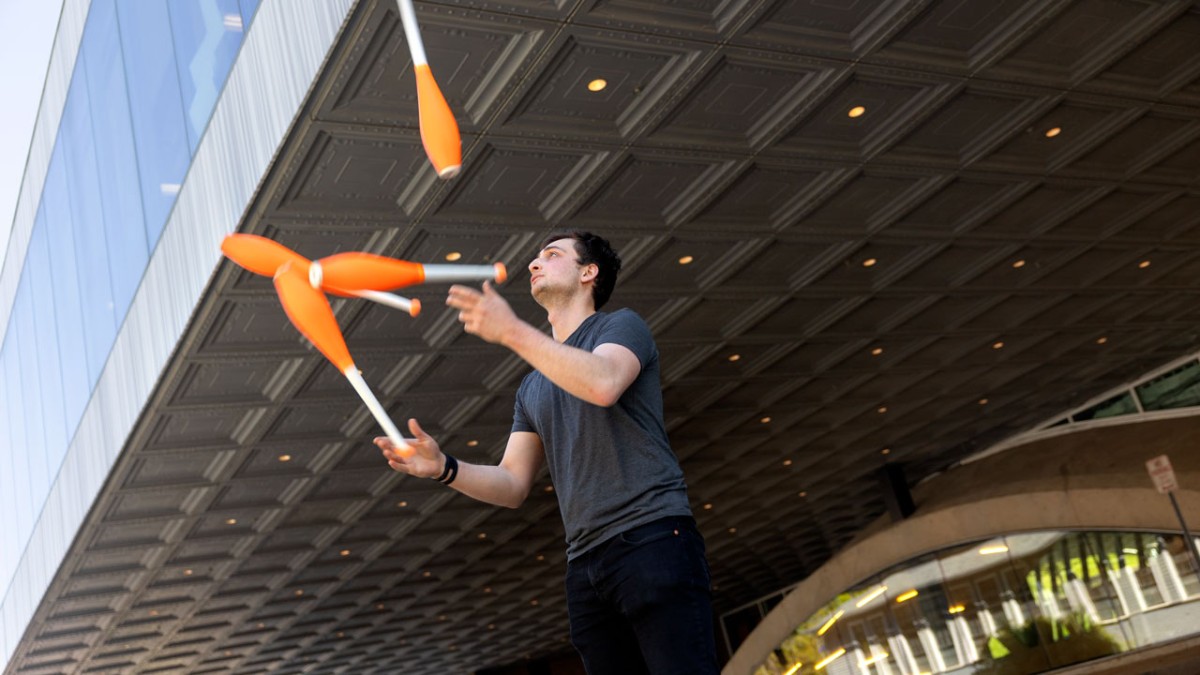Heather Wilber wins thesis prize from Association for Women in Mathematics
The Association for Women in Mathematics (AWM) has announced Heather Wilber ’21 Ph.D. as a winner of their dissertation prize for her thesis “Computing Numerically with Rational Functions.”
Wilber, who is now a postdoctoral fellow at the University of Texas’ Oden Institute for Computational Engineering and Sciences, completed her Ph.D. under the supervision of Professor Alex Townsend at Cornell’s Center for Applied Math. She earned her M.S. in Applied Math at Boise State University with Professor Grady Wright.
AWM is a non-profit organization founded in 1971. The group has more than 3500 members from around the world, representing a broad spectrum of the mathematical community. The AWM Dissertation Prize was established in 2016 as an annual award recognizing exceptional work in a dissertation defended in the last 24 months. The award is intended to be based entirely on the dissertation itself, not on other work of the individual.
Wilber's work involves problems at the interface of approximation theory, computational mathematics, and scientific computing. This includes the development and analysis of low rank approximation methods, direct solvers for partial differential equations, algorithms for solving linear matrix equations and evaluating functions of matrices, and robust algorithms for computing with rational approximations to functions.
In the AWM’s citation for Wilber’s work they noted, “Wilber presents new numerical methods using rational functions for solving Sylvester and Lyapunov matrix equations whose right-hand sides have decaying singular values. She brings a tremendous breadth of mathematics together to do this, combining rational approximation theory in the complex plane, including associated conformal mapping problems, and numerical linear algebra, focusing on the important and hot topic of low-rank approximation. In addition, the thesis develops a rational approximation framework for adaptive computing in the context of signal processing. As one letter writer noted, ‘Chapter 4 makes a very impressive contribution, a new solver for linear systems with Toeplitz structure. … With deep insights from rational approximation and other tools, Wilber has found a completely novel, deterministic construction that offers the potential to outperform randomized algorithms.’”
Wilber had high praise for Cornell’s Center for Applied Mathematics and the many individuals she worked with along the way to completing and defending her thesis. “I am deeply honored to have received the AWM Dissertation Award. I thank those that nominated me and supported my nomination with their letters. I am grateful to the many mentors and collaborators that I worked with during my time as a graduate student, including Nick Trefethen, Daniel Kressner, Bernhard Beckermann, Grady Wright, Anil Damle, Daniel Rubin, and my advisor Alex Townsend. I also thank the Cornell Center for Applied Mathematics. Their commitment to the support of women in scholarship has been especially instrumental to my success. The future of mathematics is shaped by the institutions that nurture it, and the mathematics community at Cornell has inspired in me a broad, inviting, and invigorating vision of that future,” Wilber said.
Wilber will receive her award at the Joint Mathematics Meetings in January 2022 in Seattle.




